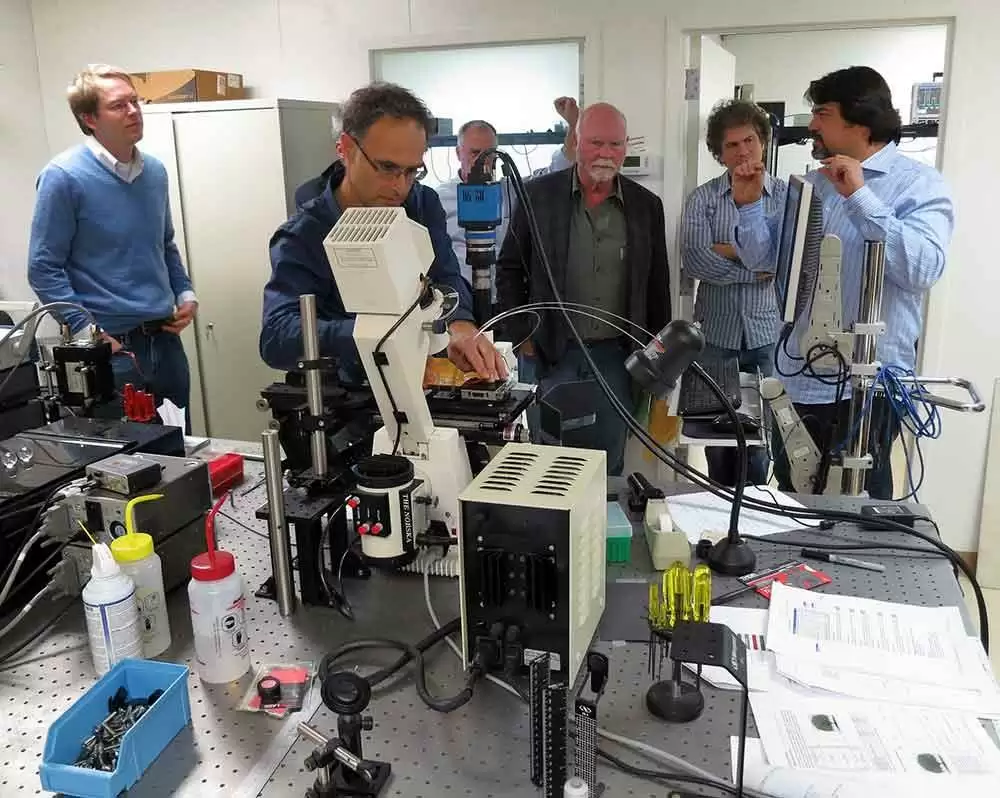Celiac.com 02/26/2025 - Celiac disease, an autoimmune disorder triggered by gluten consumption, affects millions worldwide. Gluten proteins, particularly gliadin, are central to the inflammation and intestinal damage associated with the condition. Recent research explores innovative methods to make gluten safer, including transamidation—a chemical modification that alters gluten’s structure to reduce its toxic effects. This study investigates the impact of transamidated gliadin on celiac-related gluten sensitivity, analyzing its effects on cellular models, animal models, and intestinal health. The findings offer promising insights into developing functional gluten-based foods that may benefit individuals with celiac disease or gluten sensitivity.
The Role of Gliadin in Celiac Disease
Gliadin, a protein found in wheat, initiates the immune response in individuals with celiac disease. When consumed, gliadin fragments trigger inflammation, damaging the small intestine lining and leading to nutrient malabsorption. For people with celiac disease, even small amounts of gliadin can result in severe symptoms. Eliminating gluten entirely is the only current solution, but this can be challenging due to its widespread presence in foods.
What is Transamidation?
Celiac.com Sponsor (A12):
Transamidation is a process that modifies the protein structure of gliadin by introducing cross-links under specific conditions. This alters its interaction with the immune system, reducing its ability to trigger harmful responses. By modifying gliadin, researchers aim to create a less toxic version of gluten that could expand dietary options for those with gluten sensitivity or celiac disease.
Key Findings of the Study
1. Cellular Level Analysis
The study used Caco-2 cells, which mimic the human intestinal lining, to evaluate the toxicity of transamidated gliadin. Results showed that transamidated gliadin caused significantly less intestinal damage compared to unmodified gliadin. Furthermore, the pro-inflammatory response was notably reduced, indicating that the modified protein was less likely to activate harmful immune pathways.
2. Animal Model Insights
In animal experiments using a BALB/c mouse model, transamidated gliadin resulted in lower levels of inflammation compared to unmodified gliadin. The balance between immune responses (Th1/Th2) improved, suggesting a decrease in the severity of the immune reaction. Additionally, the intestinal microbiome of the mice consuming transamidated gliadin showed signs of improved balance, indicating better overall gut health.
3. Reduced Toxicity and Improved Tolerance
The study demonstrated that transamidated gliadin significantly reduced toxicity while maintaining key functional properties of gluten. This modification opens the door for its use in creating functional foods that could retain the texture and structure of traditional gluten-based products without triggering celiac-related immune responses.
Implications for Gut Health and Microbiome Balance
One of the most intriguing findings was the improvement in the intestinal microbiome among the animals consuming transamidated gliadin. A balanced microbiome is essential for overall health and plays a role in managing inflammation and supporting immune function. By promoting a healthier gut environment, transamidated gliadin may have additional benefits beyond reducing gluten toxicity.
Potential Applications in Functional Foods
The development of functional foods using transamidated gliadin could revolutionize gluten-free diets. Many gluten-free products currently rely on alternative flours and binding agents that lack the texture and nutritional profile of wheat-based products. Modified gliadin could be used to create gluten-tolerant foods that mimic traditional wheat-based items in taste, texture, and versatility. This innovation would not only enhance dietary options but also improve the nutritional balance of gluten-free diets.
Why This Study Matters for Celiac Disease
For individuals with celiac disease, this research represents a significant step toward expanding dietary possibilities. The strict avoidance of gluten is often socially isolating, nutritionally limiting, and challenging to maintain. By reducing gliadin toxicity, transamidation offers the potential for safer, more inclusive food options. This approach also highlights the importance of ongoing research into ways to mitigate gluten-related health impacts, potentially reducing the burden of celiac disease on individuals and their families.
Conclusion
The study on transamidated gliadin offers compelling evidence that modifying gluten can reduce its toxicity and immune-triggering effects. While further research is needed to confirm these findings in human trials, the results suggest a promising pathway toward safer gluten-based foods. For those managing celiac disease or gluten sensitivity, this could mean access to a broader range of dietary choices, improving both quality of life and overall nutrition. The potential for creating functional foods that retain the desirable properties of gluten while minimizing harm marks a hopeful development in the quest to unlock gluten tolerance.
Read more at: pubs.acs.org










Recommended Comments
There are no comments to display.
Create an account or sign in to comment
You need to be a member in order to leave a comment
Create an account
Sign up for a new account in our community. It's easy!
Register a new accountSign in
Already have an account? Sign in here.
Sign In Now